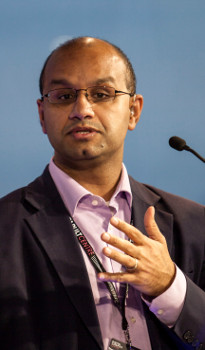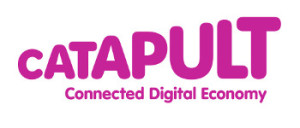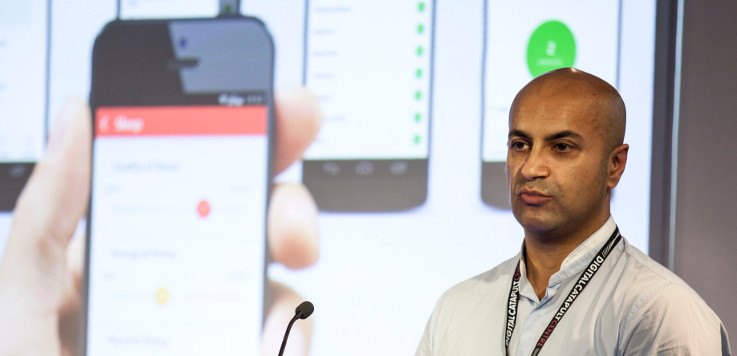Digital Health: Catapulting Personalised Medicine Forward
| AGENDA & SPEAKERS | DOWNLOADS | PICTURES/VIDEOS | CONFERENCE REPORT |
| SESSION 1 | SESSION 2 | SESSION 3 | SESSION 4 |
Session 4: Patient-driven Digital Platforms
The central objective around which patient-centered digital health companies are united is the creation Facebook-like social media platforms and services that allow individuals to take control of their own health data.
Ifty Ahmed, founder and CEO of POW Health described how his company spent 3.5 years creating a site that offers users a completely safe, secure and easy-to-use site, via which they can manage their health “in one place”. Capabilities include self-tracking of medication, of health indicators and of readings from monitoring devices.
“We let people track things that are important to them, but also their doctors can ask them to track health indicators,” Ahmed said.
These personal records can be used to inform and get feedback relating to behaviour change, leading to improved health outcomes. “The aim is to inform, empower and be in control of your health,” said Ahmed. POW Health provides a personal online health centre, with all information for managing long term illnesses in one place. “You can share progress with doctors, set goals and targets, control what you share,” Ahmed added.

Dee O’Sullivan – Patient View
The system went live six months ago and now has users in a number of countries, using different languages and managing a number of conditions. POW Health is working with various partners and can interface to a range of devices and apps, integrating the data in one place. “All the technology is there now – there are opportunities for partners to take part and help drive up the quality of the platform,” said Ahmed.
While there is certainly a growing appetite amongst patients for digital health apps, there is also concern about their quality, noted Dee O’Sullivan, Director of myhealthapps.net, Patient View.
Patient View was set up 15 years ago to collect and analyse the views of patients. It now has a network of 120,000 patient groups worldwide, in 1,000 different healthcare areas. Myhealthapps.net was launched a year ago in response to queries from patients who wanted to know which apps they could trust.
The website works on the basis of a rating system that was devised to align with what patients said they want from health apps. This covers five key attributes:
- Help with dealing with the condition
- Easy to use
- Trustworthy
- Connected to other conditions/connected to clinicians
- Can be used regularly
The website now list 400 apps with associated information on each one, such as who the developer is and how the work was funded. “We do it from the patient perspective, but work with other groups so we can help doctors too, and get doctors’ views of health apps,” O’Sullivan said.
Patient View is also building up the evidence base around patients’ requirements and how they value apps, and looking to see how apps can help address unmet patient needs. This represents a valuable source of information for developers, healthcare professionals, regulators and industry, O’Sullivan said.
Jack Bowman, founder and CEO of Handle My Health described how his company is creating “the Facebook of Healthcare”, providing a platform, Handle My Health MIAMI, to which partners can port their apps and so foster development of a digital healthcare ecosystem supporting one-to-one care across a range of chronic disorders.
The aim is to overcome the fragmentation of healthcare by centering the system on the individual and using apps, devices and observations/diaries to support self-management. The system also provides a longitudinal view for clinicians of what is happening to patients and how their condition affects them from day-to-day, informing consultations.
The system can exchange data as appropriate with doctors, pharmacies and community services. “The ecosystem brings all data into one place and can be used to form the basis of decisions and to provide continuity of care,” Bowman said.
Giving patients control of their own health data is seen as a route to overcoming data confidentiality and privacy issues that have held back digital health. However, there is another key driver for digital health, which is that putting patients in control can overcome the communication barriers that exist between medical specialties.

- Mohammad Al-Ubaydli – Patients Know Best
The person who attends all the consultations with all the specialists is the patient. It follows that patient-controlled data forms the basis for organising and coordinating care across all providers, said Mohammad Al-Ubaydli, Founder and CEO of Patients Know Best.
One result of putting patients in control of monitoring their conditions is that they have greater confidence about their health status. “There are no more ‘just-in-case’ appointments,” Al-Ubaydli noted. In the long term management of HIV, one NHS Trust was able to reduce appointments with Clinical Nurse Specialists from three to one per year. “The hospital saves money and the patients are happier,” Al-Ubaydli said.
In another example, giving inflammatory bowel disease patients the ability to track their symptoms using Patients Know Best meant that there were no emergency admissions over one year at Luton and Dunstable NHS Trust.
The Patients Know Best platform has been developed to support patients with a number of conditions and is in use at over 50 sites across the UK. Starting from putting patients in control – and with the growing evidence of the benefits – Al-Ubaydli said there are now moves to use patient-controlled records and self-monitoring to redesign care pathways. “From the bottom-up approach we have built the confidence to start going top-down,” he said.
| SESSION 1 | SESSION 2 | SESSION 3 | SESSION 4 |
This event was organised in collaboration with:
 |
 |
 |


